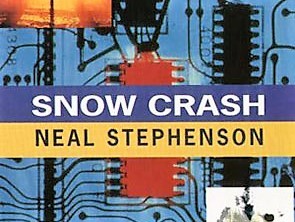Narrative and Metaverse
Part 3: The Luther Protocol
Our story so far …
The metaverse is real. It is an invisible, yet physically instantiated world of quadrillions of clustered human neurons alive in an electric ocean of neurochemicals, networked across billions of human brains through shared linguistic structures. These linguistic structures are the grammars of narrative. Like a microbe, these narrative grammars are profoundly alien to our conception of life, but a biological conception of narratives and a physical conception of their environment – the metaverse – is as important as a biological conception of viruses and bacteria.
Why? Because also like viruses and bacteria, these narrative grammars can be altered at a fundamental level through gain-of-function technologies. They can be weaponized. Big Tech, Big Media and Big Politics have made a conscious effort to weaponize these narrative organisms by inserting specific linguistic triggers that in turn shape the physical clustering of human neurons in ways that serve their interests. Big Tech/Media/Politics are changing the way we think.
Today we begin the battle to reclaim our humanity and our autonomy of mind.

A gentile came before two teachers, Shammai the strict and Hillel the tolerant, and to each in turn said, “I will convert to Judaism if you can teach me the whole Torah while I stand on one foot.”
Shammai chased him away.
But Hillel said to the gentile, “What is hateful to you, do not do to your neighbor. That is the whole Torah; the rest is commentary. Now go and learn it.”
The Golden Rule is one of the Oldest Stories. It is certainly the Best Story. It is written in ancient Egyptian fables, preserved in papyri from the Middle Kingdom. It is written in the Sanskrit epic “Mahabarata”, as the way in which dharma manifests itself in human affairs. It is written in the Greek texts of Thales and Pythagoras. It is written in the Persian texts of Zoroaster. It is written in the Sermon on the Mount.
We're going to write it again.
The rest is commentary.

The Three Theorems of Psychohistorical Quantitivity:
1) The population under scrutiny is oblivious to the existence of the science of Psychohistory.
2) The time periods dealt with are in the region of 3 generations.
3) The population must be in the billions for a statistical probability to have a psychohistorical validity.

We are all susceptible to the pull of viral ideas.
Like mass hysteria. Or a tune that gets into your head that you keep humming all day until you spread it to someone else.
Jokes. Urban legends. Crackpot religions. Marxism.
These two quotes are at the core of my thinking about narrative and metaverse, and how we can write the Old Stories and sing the Old Songs again.
- From Isaac Asimov, there is a knowable, scientific structure to how unstructured data shapes the behavior of humanity, and that knowledge can be used for good or for evil.
- From Neal Stephenson, language is literally a virus, and the technology of digital networks can and will be used for the intentional pandemic spread of gene-spliced linguistic structures.
As importantly, though, these two books are at the core of my thinking about narrative and the metaverse, and how we can write the Old Stories and sing the Old Songs again. I was 16 when I read the Foundation Trilogy, 28 when I read Snow Crash. They're books that I read at just the right time in my life, books that have informed and influenced everything that came after them. Books that left a scar.
We've all had that experience, right? Books that we read at just the right time? And books that we didn't. We've all that experience of telling a close friend that they must read one of those special books, and they do, and ... ehh. Vice versa, too. Honestly, I've started Godel, Escher, Bach half a dozen times because friends have said that it's so great, and I've never been able to get into it. And for the love of god please don't talk to me about Ayn Rand.
So why is THAT? Why would a book need just the right timing to hit us so hard, to change the way we think for the rest of our life, and if it misses that timing, then ... ehh. And why do we all read these life-changing books in our teens and 20s?










I think that the key line here is “The Old Stories have been inside of us all along!” And I’d say that the key word is “inside.” For the past 300 - 400 years we’ve been on an “all outside no inside” trajectory. “Inside” is relegated to the subjective and only what is “outside” and measurable can be regarded as the truth. If the Old Stores are indeed “inside us” - and I do believe that they are - then that means that there is an objective truth inside of us that will never be verifiable via our standard “truth metrics” of today.
Sure the Old Stories can be typed out and turned into digital bits - but the “inside” part of the Old Stories can never be digitized. The “inside” isn’t physical. It’s meta-physical.
An old story:
Abba Anthony said, “I saw the snares that the enemy spreads out over the world and I said groaning, “What can get through from such snares?” Then I heard a voice saying to me, ‘Humility.’”
Ben,
Thank you for the effort invested into “the fight”, and into the creation of the ET community.
As for the problem:
I commend you in your laying out of the metaverse concept across this trilogy. It’s bold in its erudition, and brave in the occasional lack of. The passion is contagious. I read it sequentially after listening to a few thinkers approach the metaverse from slightly different angles and can recommend this podcast as a supplement to this discussion, which I expect to be rich.
As for the solution:
I don’t see it. Old stories are artifacts of the past. The metaverse is not the past, it is the future. I think that new stories are required to meet the novel crises, versus cherry-picking/close-reading the sexier outtakes from the old. I’m not suggesting turning our backs on the the classics, or history, or philosophy. I am suggesting that we need new answers, and that the old will not shield us unless we choose (or are handed) a wholesale de-evolution as a path forward.
To pick on a specific example:
You laud the Golden Rule. What makes the golden rule so goddamn golden in our society? I view it as a developmentally infantile and self-centered approach to understanding interpersonal relationships. “Do unto others as you would others do unto you.” This requires giving absolutely no thought, modeling, or sensitivity to the mental states and motivations of others and yet it’s often used as a paragon for interpersonal behavior. I’m not suggesting that we need to be respectful of everybody’s “personal truth”. But the Golden Rule just turns us into morons by excising the context of others.
On the one hand, something like “try to understand Jimmy’s mind-set” seems like low-hanging fruit. On the other hand, I’m not sure that 95%+ of the population has ever been given any tools “to understand Jimmy’s mindset”.
In today’s world (and in worlds past), there seems to be very little formal development on how to understand oneself, others, and the world. Meanwhile, informal development is provided by family (with a huge variance in amount and quality) and society (which today means navigating hundreds/thousands of competing narratives). As such, there may be quite a few people still at very early stages of development when it comes to things like emotional intelligence. So yeah, the old story of the “Golden Rule” is certainly an upgrade on barbaric egotism. But it’s still egotism nonetheless.
Perhaps there was a pre-metaverse time and place were humans were better en masse. I am certain that there were times when we were, at the very least, quite different. SA’s brilliant review of Julian Jaynes’ The Origin Of Consciousness In The Breakdown Of The Bicameral Mind points to an example.
Personally, I’m hungry for solutions (even at the most micro level), but I want fresh, not old. Maybe it’s just a matter of packaging, or marketing.
So, for now, I’ll skip the bible study. I’ll read Dostoyevsky and listen to Very Bad Wizards on my time off. But when it comes to getting my hands dirty, I’d like to do it in service of some new form of genius.
That’s a shame, because you’re missing out on some universal truths that are quite valuable, even to nonbelievers.
“Unless you people see signs and wonders” Jesus said “you will never believe.”
John 4:48
Chapter Four of John deals with Jesus and the Samaritans, then his return to Galilee. The stark contrast between the two is illustrative of the notions of human greed and the desire for instant gratification vs delaying something in order to get a much greater reward after time and faith to a cause. Sorry, I’ll end the Bible study at that.
We’re seeing this happen somewhat in regards to Ukraine I feel. They are tapping into the old song of “Life, Liberty & the Pursuit of Happiness” that rings for so many.
The old songs are old for a reason. They have lasted for millennia for a reason.
Finding ways to remember and implement them in our lives is “Make, Protect, Teach” in my mind.
I deeply appreciate your efforts to think about and articulate possible paths forward. Over time I have been trying to think through the structure of your thinking/approach.
For a long time ET analysis/proposals struck me as being structured along the lines of setting up a new political movement. The Pack. Not in any sense copying the exact approaches of traditional political parties but responding to a world where the forces tearing apart society were (well) organized along those lines. It made intuitive sense that efforts to resist/overcome those forces would require some serious level of organization, even if you were careful not to allow those forces to completely dictate the playing field and the rules of engagement. As you said here your “original idea for how to save the world was to use the tools of the Snake to beat them at their own game….a secret priesthood of psycho-historians, properly armed with the knowledge of a Narrative Machine, could set the world straight by nudging humanity onto a better path.” Whether you could literally beat them at their own game,
You now seem to think that a quasi-political approach can’t work. “[B]efore long the project would be corrupted, maybe by me, maybe by someone else. Not intentionally, I’m sure, but eventually, for sure.” Despite all of ET’s efforts the narrative devices the governmental/oligarchical forces are using are too powerful.
You now seem to have pivoted to a quasi-religious approach. Go back to eternal truths. But your discussion seems to openly concede that all of the wise men/prophets you’ve evoked as models have been subverted/drowned out just as readily as the people who tried to fight on political/secular grounds.
I was originally raised Roman Catholic so am acutely aware of how powerful forces can corrupt a faith based on eternal truths and that sincere belief in those truths can survive among a subset of followers despite the larger corruption. My recollection is that you and Rusty were raise as evangelical Protestants, and so the central notions that individuals should pursue faith and truth independently and should reject the notion that a powerful bureaucratic organization can control that “truth” makes plenty of sense. But as I think you fully understand (your podcast #5 about factions with evangelicalism was awesome) this “individual focus on eternal truths” is every bit as subject to subversion and corruption as any other.
Absolutely respect that any given approach can work well for some individuals. But ET has been raising issues that go far beyond individual behavior or what isolated individuals could possibly address. I hope you will explain at greater length while this “individual focus on eternal truths” approach won’t get beaten back on the larger political/corporate playing field as readily as your original approach.
Bravo, Ben, this was profound to me. I’m looking forward to more details, and seeing the work of the narrative research center and related projects.
Proud to be a member of the pack!
Thank you, Tanya! Wonderful to be in YOUR pack.
Interesting tidbit on this. A broad set of observations have shown a decline in human brain sizes in recent times; seems to be linked to changes in social structures, with some suggesting the cause is increased reliance on group cognition.
This would be an outstanding time to brush up on your Ecclesiastes…